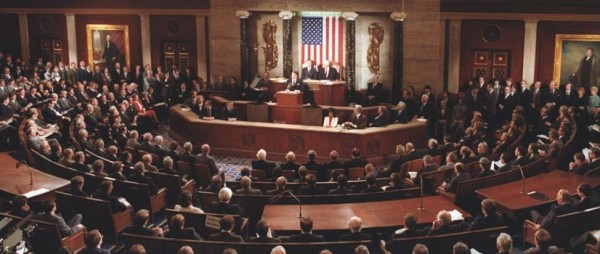Last night the President of the United States gave the annual State of the Union address. What do you do when you have to give a speech that is a prime opportunity to unite and motivate? The State of the Union address is always an interesting speech to analyze.
What an opportunity–to address the whole congress, and the members of the Supreme Court, the military leadership, and the nation. (This tradition, by the way, only goes back to 1912. Presidents prior to Woodrow Wilson contented themselves to fulfill the constitutional requirement to report to Congress by filing an annual written report.)

It is a mystery how mere words can unite and motivate people. The State of the Union speech is a report, but also an attempt to unite–and year by year the speech gets widely divergent responses.
Some of the speeches that shaped history were brief, memorable, prophetic, visionary. Lincoln’s Gettysburg Address, Washington’s Inaugural Address, King’s “I Have a Dream” speech, Churchill’s wartime addresses over the crackling radio channels.
Just a few times in my life I’ve heard a speech or sermon that stuck like an arrow. I know that it stuck because I didn’t try to remember it. It just stuck. It stuck whether or not I wanted it to stick.
What are the elements of effective speech-making?
Here are a few:
1. one controlling idea
2. an idea that has greatness in it
3. memorable turns of phrase
4. being convincing by being convinced
5. getting to the point
6. personal awareness of and interaction with the audience
7. an attention-grabbing introduction
8. an uplifting conclusion
9. a call to action
10. clear enunciation
11. emphasis and pacing
Matters of style matter; but nothing matters more than the substance. And motive matters, too. “If I speak in the tongues of men and of angels, but have not love, I am only a resounding gong or a clanging cymbal” (1 Corinthians 13:1).
Can you think of a speech or sermon that made a difference in your life? And if so, why did it stick?